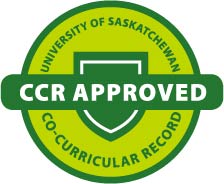Peace is on the Ballot: The Politicization of the Colombian Peace Talks
DOI:
https://doi.org/10.32396/usurj.v3i2.250Keywords:
Colombia, FARC, Peace, Civil War, Civil Society, PolarizationAbstract
On October 2nd 2016, Colombian voters rejected a referendum on the peace agreement between the federal government and the Revolutionary Armed Forces of Colombia (FARC). Contrary to most advance polling and preliminary estimates in national and international news media, the “No” vote won by a tight margin, thus rejecting a peace deal that would have brought an end to the longest civil war in the Western hemisphere. This paper examines the intersections of civil society and the political groups most actively involved in the peace process in Colombia, beginning in the 1980s and leading to the 2016 referendum. The findings are two-fold: first, civil society has played an integral role in both the endurance and the hindrance of the peace process from its beginnings in 1980s up to the present day, through electoral support of independent candidates and by mobilization of special interest groups. Second, the 2016 referendum results share exceptional demographic and geographic correlations with the results of the 2014 presidential election. This suggests the peace referendum was highly politicized and split along the lines of partisanship at the highest echelons of Colombian democracy.
Downloads
Published
Issue
Section
License
Articles: USURJ’s current Publication Agreements apply a Creative Commons Attribution-NonCommercial License (CC-BY-NC) by default. The CC BY-NC license lets others remix, tweak, and build upon work non-commercially. The author(s) can choose a different CC license, as outlined in https://creativecommons.org/about/cclicenses/. Please see the PDF for each article to determine what license is applied to that article. Author(s) can also request to reserve all copyright (All Rights Reserved). If there is no indication for articles published before September 2020, assume the author retains all rights beyond those necessary for publication by USURJ. All articles published after September 2020 will apply one of the aforementioned CC licenses. See the Publication Agreement under the Submission Preparation Checklist or Author Guidelines for more information. Artwork: All copyright for the original artwork remains with the artist unless they wish to apply a Creative Commons (CC) license to the artwork. Please see the PDF for each artwork to determine what license is applied to that artwork.







